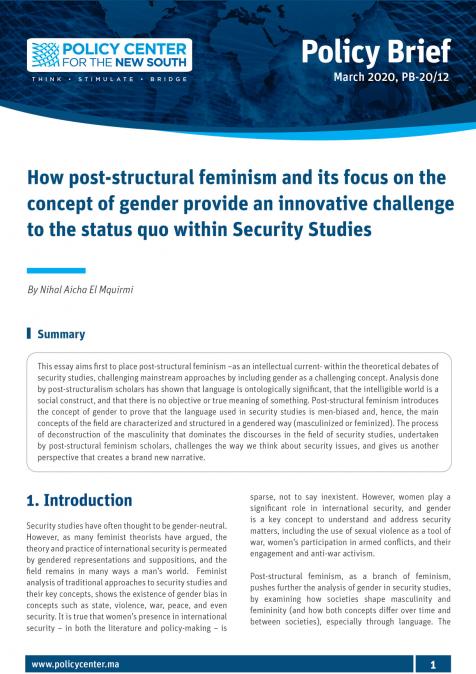Les Mardis du PCNS 18/10/2021: قراءة في البرنامج الحكومي 2026-2021: بين الفرص والتحديات
يخصص مركز السياسات من أجل الجنوب الجديد حلقة برنامجه الأسبوعي "حديث الثلاثاء" لقراءة في البرنامج الحكومي 2026-2021: بين الفرص والتحديات مع أمين السعيد، أستاذ القانون الدستوري والعلوم السياسية بجامعة سيدي محمد بن عبد الله بفاس. حددت الحكومة الجديدة 10 التزامات كبرى تفعيلا لمبدأ ربط المسؤولية بالمحاسبة وتيسيرا لتتبع وتقييم الحصيلة الحكومية. أبرز هذه الالتزامات تتمثل في توفير مليون فرصة عمل خلال الخمس سنوات المقبلة، رفع نسبة النساء العاملات إلى أكثر من 30 بالمئة بدلا من 20 بالمئة حاليا، تحسين المنظومة التربوية بهدف تصنيف المغرب ضمن أحسن 60 دولة عالميا عوض المراتب المتأخرة في جل المؤشرات الدولية ذات الصلة، تحفيز الاقتصاد الوطني، خاصة بعد الصدمة الخارجية القوية التي تعرض لها اقتصاد البلاد عقب انتشار جائحة كورونا وما ترتب عليها من آثار خاصة في صفوف الشباب والنساء. ثم تعزيز دعائم الدولة الاجتماعية وتثمين الرأسمال البشري المغربي، وحفظ كرامته، وتكريس حقوقه وتوفير ظروف رفاهيته. هل يمكننا القول إن محتوى البرنامج الحكومي ينطبق مع مخرجات تقرير اللجنة الخاصة بالنموذج التنموي الجديد؟ تعميم الحماية الاجتماعية مشروع استراتيجي لبلدنا. إلى أي مدى يمكن لهذا البرنامج أن يعزز التماسك الاجتماعي ويحدّ من التفاوت الاجتماعي؟ إلى أي مدى يمكن للحوار الثلاثي بين الحكومة والنقابات وأرباب العمل أن يساعد في تعزيز هذا النموذج وتطوير الدولة الاجتماعية؟ البرنامج يتوقع نموا بنسبة 4٪ ومليون وظيفة وإعادة تأهيل نظامي التعليم والصحة، هل هذا قابل للتحقيق وواقعي؟ هل هذه الإجراءات كافية؟ ما هي الموارد المتاحة التي يمكن للحكومة الاستفادة منها في تمويل برنامجها؟ 30 دقيقة: قراءة في البرنامج الحكومي 2026-2021: بين الفرص والتحديات تسيير: إيمان لهريش، مسؤولة عن المشاريع بمركز السياسات من أجل الجنوب الجديد المتدخل: أمين السعيد، أستاذ القانون الدستوري والعلوم السياسية بجامعة سيدي محمد بن عبد الله





